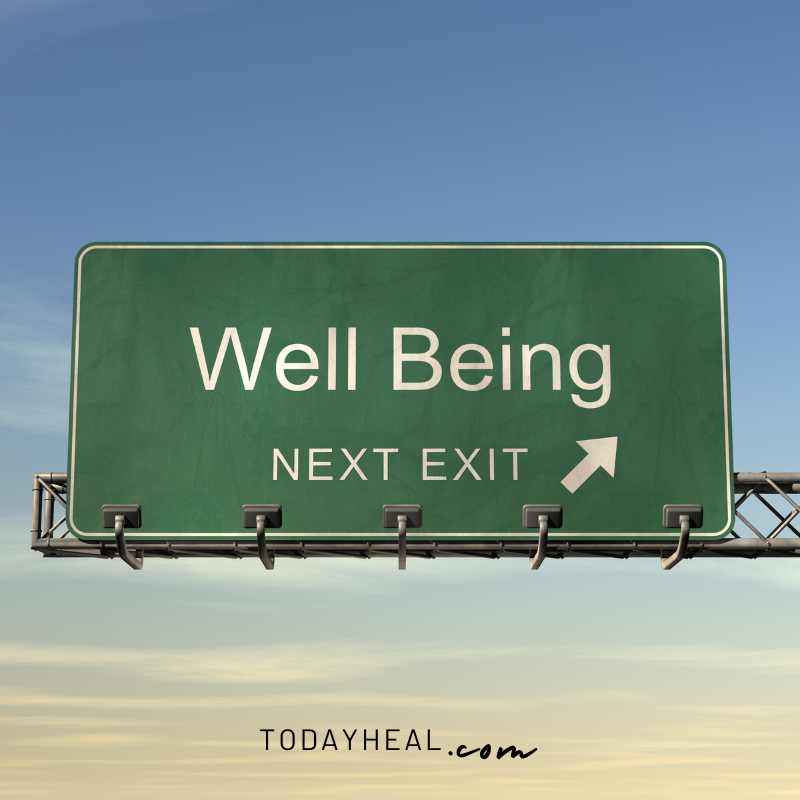Welcome to our guide to the top 10 wellness tips for 2024! In today’s fast-paced world, prioritizing our well-being has never been more crucial.
This comprehensive list offers actionable advice to help you enhance your physical, mental, and emotional health starting today.
Whether you’re looking to boost your energy levels, reduce stress, or improve your overall quality of life, these wellness tips are here to support you on your journey to a healthier and happier you. Let’s dive in and discover how you can elevate your well-being in 2024 and beyond!
1- Prioritize Mental Health: The Power of Mindfulness Practices

In today’s fast-paced world, it’s easy to get caught up in the hustle and bustle of daily life, often at the expense of our mental well-being. However, prioritizing mental health is essential for maintaining a balanced and fulfilling life. One powerful wellness tip to nurture our mental health is by dedicating time each day to mindfulness practices like meditation or journaling.
Mindfulness, defined as the practice of bringing one’s attention to the present moment without judgment, has gained widespread recognition for its ability to alleviate stress, reduce anxiety, and promote emotional well-being. By incorporating mindfulness into our daily routines, we can cultivate a greater sense of peace, clarity, and resilience in the face of life’s challenges.
Meditation, one of the most well-known wellness tips for mindfulness practices, involves focusing the mind on a particular object, thought, or activity, such as the breath or a mantra. By quieting the chatter of the mind and bringing attention to the present moment, meditation can help calm the nervous system, lower blood pressure, and reduce symptoms of anxiety and depression.
Journaling is another powerful wellness tip for mindfulness practice that allows us to explore our thoughts, feelings, and experiences in a safe and non-judgmental way. By putting pen to paper and expressing ourselves freely, we can gain insights into our emotions, identify patterns of thinking, and cultivate a greater sense of self-awareness and self-compassion.
Incorporating wellness tips like mindfulness practices into our daily lives doesn’t have to be complicated or time-consuming. Even just a few minutes of meditation or journaling each day can make a significant difference in our mental and emotional well-being. Whether it’s taking a few deep breaths to center ourselves before a busy day or spending a few moments reflecting on our thoughts and feelings before bed, carving out time for mindfulness can have profound effects on our overall health and happiness.
As we navigate the ups and downs of life, it’s essential to remember that our mental health matters. By prioritizing wellness tips like meditation and journaling, we can cultivate greater resilience, inner peace, and emotional well-being, allowing us to live more fully and authentically each day.
So, why not take a few moments right now to pause, breathe, and reconnect with yourself? Your mental health will thank you for it.
2- Stay Active – Nurturing Your Body and Mind Through Movement

In the hustle and bustle of modern life, it’s easy to get caught up in the chaos and neglect our bodies and minds. However, staying active is not just about physical fitness—it’s about nurturing our overall well-being and finding balance in our lives. Whether it’s through yoga, walking, or strength training, engaging in regular physical activity can have profound effects on our energy levels, mood, and overall health.
Yoga, with its gentle movements and focus on breath, offers a holistic approach to fitness and wellness. It not only strengthens the body but also calms the mind, helping to alleviate stress and anxiety. Through yoga practice, we can cultivate greater flexibility, balance, and inner peace, allowing us to navigate life’s challenges with grace and resilience.
Walking, often overlooked as a form of exercise, is a simple yet powerful way to stay active and connected with nature. Whether it’s a leisurely stroll through the park or a brisk walk around the neighborhood, walking gets the blood flowing, boosts energy levels, and clears the mind. Plus, spending time outdoors can lift our spirits and improve our mood, offering a much-needed respite from the demands of daily life.
Strength training, though often associated with building muscle mass, offers a myriad of benefits beyond physical strength. By challenging our bodies with resistance exercises, we not only build muscle and bone density but also improve our metabolism, balance, and overall functional wellness. Strength training can boost confidence, enhance body awareness, and empower us to tackle life’s challenges head-on.
But staying active isn’t just about hitting the gym or following a strict exercise regimen—it’s about finding joy in movement and listening to our bodies’ needs. It’s about dancing in the living room, taking the stairs instead of the elevator, or playing with our children or pets. It’s about finding activities that bring us joy and incorporating them into our daily lives in whatever way feels right for us.
As we prioritize staying active, let’s remember to approach it with compassion and empathy for ourselves. It’s okay to start small, take breaks when needed, and adjust our routines as life ebbs and flows. What matters most is that we honor our bodies and minds, nurturing them with movement and kindness each and every day.
So, whether it’s a downward dog on the yoga mat, a leisurely stroll in the sunshine, or a few sets of squats in the living room, let’s embrace the power of movement to nourish our bodies and minds. Together, let’s stay active and thrive.
3- Nourishing Your Body and Soul: The Power of Whole Foods

In a world filled with processed snacks and fast-food options, it’s easy to overlook the importance of nourishing our bodies with whole foods. Yet, embracing a diet rich in fruits, vegetables, whole grains, and lean proteins can have a profound impact on our physical health, emotional well-being, and overall quality of life.
When we choose whole foods, we’re not just fueling our bodies—we’re nurturing our souls. Fruits and vegetables, bursting with vibrant colors and flavors, offer a cornucopia of vitamins, minerals, and antioxidants that support every aspect of our health. From boosting our immune system to promoting healthy digestion and glowing skin, these nutrient-rich foods are nature’s medicine, offering a bounty of benefits with each delicious bite.
Whole grains, such as quinoa, brown rice, and oats, provide a hearty source of fiber and complex carbohydrates that fuel our bodies with sustained energy. They help regulate blood sugar levels, promote heart health, and keep us feeling full and satisfied throughout the day. By incorporating whole grains into our diet, we can nourish our bodies and minds with the sustained energy and vitality they crave.
Lean proteins, including poultry, fish, tofu, and legumes, are essential for building and repairing tissues, supporting muscle growth, and maintaining a healthy metabolism. They provide a source of high-quality protein without the added saturated fat and cholesterol found in many processed meats. By prioritizing lean proteins in our diet, we can fuel our bodies with the nutrients they need to thrive, while also supporting our long-term health and well-being.
But beyond the physical benefits, embracing a diet rich in whole foods can also have a profound impact on our emotional well-being. When we nourish our bodies with wholesome, nutrient-dense foods, we’re not just feeding our physical selves—we’re feeding our souls. We’re honoring our bodies’ innate wisdom and providing them with the sustenance they need to function at their best.
Moreover, preparing meals with whole foods can be a deeply nourishing and grounding experience, connecting us with the natural world and the rhythms of the seasons. Whether it’s picking fresh produce from the garden, savoring the aroma of herbs and spices in the kitchen, or sharing a homemade meal with loved ones, the act of cooking and eating whole foods can be a source of joy, comfort, and connection.
So let’s embrace the power of whole foods to nourish our bodies and souls. Let’s fill our plates with an abundance of colorful fruits and vegetables, hearty whole grains, and nourishing lean proteins. Let’s savor each bite, knowing that we’re not just feeding our bodies, but also feeding our souls with the love and care they deserve. Together, let’s embrace the journey to optimal health and well-being, one whole food at a time.
4- Quenching Your Body and Soul: The Healing Ritual of Hydration

In the hustle and bustle of daily life, it’s easy to overlook the simple yet profound act of hydrating our bodies. Yet, staying hydrated is not just about quenching our thirst—it’s about nourishing our bodies and nurturing our souls from the inside out.
Hydration is more than just a physical necessity—it’s a sacred ritual, a gentle reminder to care for ourselves with love and compassion. By drinking plenty of water and herbal teas throughout the day, we can replenish our bodies and replenish our spirits, supporting our overall health and well-being in the process.
Water is the elixir of life, essential for every cell, tissue, and organ in our bodies. It helps regulate body temperature, flush out toxins, and transport nutrients to where they’re needed most. When we stay hydrated, we’re not just fueling our bodies with water—we’re fueling our souls with vitality, energy, and resilience.
But beyond the physical benefits, staying hydrated can also have a profound impact on our emotional well-being. In a world filled with stress and uncertainty, the simple act of sipping on a glass of water or herbal tea can be a powerful form of self-care, a moment of calm and clarity in the midst of chaos.
Herbal teas, in particular, offer a unique blend of hydration and healing, combining the nourishing properties of water with the therapeutic benefits of medicinal herbs. Whether it’s a soothing cup of chamomile to calm the nerves, a revitalizing brew of peppermint to aid digestion, or a fragrant infusion of lavender to promote relaxation, herbal teas offer a wealth of wellness benefits for both body and soul.
By hydrating mindfully, we’re not just drinking water—we’re drinking in the essence of life itself, honoring our bodies’ innate wisdom and nourishing ourselves from the inside out. So let’s raise a glass to hydration, to the healing power of water and herbal teas, and to the journey of self-care and self-love that begins with a simple sip. Cheers to hydrating our bodies and souls, one mindful sip at a time.
5- Embracing Sweet Dreams: The Healing Power of Quality Sleep

In the whirlwind of modern life, wellness often takes a back seat to the endless demands of work, family, and responsibilities. Yet, beneath the surface, the quality of our sleep plays a profound role in shaping our physical health, emotional well-being, and overall quality of life.
Sleep is not merely a passive state of rest—it’s a vital process that allows our bodies and minds to recharge, repair, and rejuvenate. From bolstering cognitive function and memory retention to regulating mood and emotional resilience, quality sleep is the cornerstone of optimal health and vitality.
But in today’s fast-paced world, achieving quality sleep can feel like an elusive dream. Stress, anxiety, and digital distractions can wreak havoc on our sleep patterns, leaving us feeling tired, irritable, and unrefreshed come morning.
That’s why it’s essential to prioritize sleep as an essential component of self-care and wellness. By aiming for 7-9 hours of quality sleep each night, we can provide our bodies and minds with the rest they need to thrive.
Quality sleep isn’t just about quantity—it’s about creating a nurturing sleep environment and establishing healthy bedtime habits that promote relaxation and restfulness. From winding down with a warm bath or soothing cup of herbal tea to dimming the lights and powering down electronic devices, incorporating calming rituals into our bedtime routine can signal to our bodies that it’s time to unwind and prepare for sleep.
Moreover, cultivating a consistent sleep schedule can help regulate our internal body clock, making it easier to fall asleep and wake up feeling refreshed each day. By going to bed and waking up at the same time every day—even on weekends—we can synchronize our sleep-wake cycle and optimize our sleep quality.
But perhaps most importantly, we must approach sleep with empathy and compassion for ourselves. In a world that glorifies productivity and busyness, it’s easy to overlook the importance of rest and relaxation. Yet, by honoring our body’s need for sleep, we’re not only prioritizing our physical health and well-being but also nurturing our emotional resilience and mental clarity.
So let’s embrace the healing power of quality sleep, to nurture our bodies, soothe our minds, and replenish our souls. Let’s create a sanctuary of tranquility and peace in our bedrooms, where we can surrender to the embrace of sweet dreams and awaken each morning feeling refreshed, renewed, and ready to embrace the day ahead.
6- The Healing Power of Gratitude: Nurturing Joy and Resilience in Daily Life

In a world often characterized by chaos, uncertainty, and adversity, finding moments of peace, joy, and contentment can feel like an uphill battle. Yet, amidst life’s challenges, there exists a profound source of strength and solace: gratitude.
Gratitude isn’t merely a fleeting emotion or passing sentiment—it’s a transformative wellness tip that has the power to shift our perspective, elevate our mood, and nourish our soul. By cultivating a daily practice of gratitude, we can cultivate a positive mindset, foster resilience, and embrace the abundance that surrounds us.
But what does it mean to practice gratitude? At its core, gratitude is about acknowledging the blessings, big and small, that enrich our lives each day. It’s about recognizing the goodness that exists within and around us, even in the midst of hardship or adversity.
For some, practicing gratitude may take the form of journaling, where they take time each day to reflect on the things they’re thankful for. For others, it may involve incorporating gratitude into their daily meditation practice, where they focus their attention on the blessings in their life and cultivate a sense of appreciation and abundance.
But gratitude isn’t confined to specific rituals or practices—it’s a way of being, a mindset that permeates every aspect of our lives. It’s about approaching each day with open eyes and an open heart, ready to receive the gifts that life has to offer.
Incorporating gratitude into our daily lives can have profound effects on our well-being. Research has shown that practicing gratitude can lower stress levels, enhance emotional resilience, and improve overall mental health. By shifting our focus from what we lack to what we have, we can cultivate a sense of fulfillment and contentment that transcends material possessions or external achievements.
Moreover, gratitude has the power to deepen our connections with others and foster a sense of community and belonging. When we express gratitude to those around us, whether through a heartfelt thank-you or a simple act of kindness, we strengthen our relationships and create bonds of empathy and understanding.
But perhaps most importantly, practicing gratitude reminds us of the inherent goodness of life, even in the face of adversity. It teaches us to find beauty in the midst of chaos, to seek light in the darkness, and to embrace each moment with an open heart and a spirit of appreciation.
So let us cultivate gratitude as a daily practice, a guiding light that illuminates our path and infuses our lives with meaning and purpose. Let us pause each day to count our blessings, to savor the richness of life, and to embrace the beauty that surrounds us. For in gratitude, we find joy, resilience, and the boundless potential for growth and transformation.
7- Title: The Healing Power of Connection: Cultivating Meaningful Relationships for Well-Being

In a world where technology often dominates our interactions, fostering genuine connections with others has never been more crucial for our well-being. As human beings, we are inherently social creatures, wired for connection and belonging. Yet, in the hustle and bustle of daily life, it’s all too easy to lose sight of the importance of nurturing our relationships with friends, family, and community members.
At its core, fostering social connections is about more than just having people around us—it’s about cultivating deep, meaningful relationships that enrich our lives and nourish our souls. Whether it’s sharing laughter with friends, offering support to a loved one in need, or simply spending quality time with family, these connections are essential for our emotional and psychological well-being.
One of the most significant benefits of nurturing social connections is the sense of belonging it provides. When we feel connected to others, we feel a sense of belonging and acceptance—a feeling that we are valued and appreciated for who we are. This sense of belonging is essential for our mental health, as it reduces feelings of loneliness and isolation and enhances overall happiness and life satisfaction.
Moreover, social connections offer a source of support and resilience during challenging times. When we have strong relationships with friends and family, we have a support network to lean on during difficult moments. Whether it’s a shoulder to cry on, a listening ear, or a helping hand, knowing that we have people we can turn to in times of need can make all the difference in the world.
But fostering social connections isn’t just about receiving support—it’s also about giving back and contributing to the well-being of others. By nurturing our relationships with friends, family, and community members, we not only strengthen our own social support network but also create a ripple effect of kindness and compassion that extends far beyond ourselves.
In today’s fast-paced world, it’s easy to let our social connections fall by the wayside as we prioritize work, responsibilities, and other commitments. However, investing time and energy into nurturing these relationships is essential for our overall well-being. Whether it’s scheduling regular phone calls with loved ones, planning outings with friends, or participating in community events, finding ways to connect with others should be a top priority.
Ultimately, fostering social connections is about recognizing the inherent value of human connection and making a conscious effort to prioritize it in our lives. By nurturing meaningful relationships with friends, family, and community members, we can cultivate a sense of belonging, reduce loneliness, and enhance our overall happiness and well-being. So let’s reach out, connect with others, and embrace the transformative power of human connection.
8- Nurturing Your Well-Being: The Power of Setting Boundaries

In the whirlwind of modern life, it’s all too easy to find ourselves stretched thin, pulled in countless directions by the demands of work, family, and social obligations. In the midst of this chaos, setting boundaries emerges as a powerful act of self-care—a way to honor our own needs and protect our mental and emotional well-being.
Setting boundaries isn’t about building walls or shutting others out; rather, it’s about creating space for ourselves to thrive, both personally and professionally. It’s about recognizing our own limits and communicating them clearly and compassionately to those around us.
At its core, setting boundaries is an act of self-respect. It’s about acknowledging our own worth and valuing our time, energy, and emotions. By setting boundaries, we signal to others—and to ourselves—that our needs matter, and that we are worthy of respect and consideration.
In personal relationships, setting boundaries can be a particularly transformative wellness tip. Whether it’s with a romantic partner, family member, or friend, healthy boundaries help to define the parameters of the relationship, clarifying expectations and promoting mutual respect. This might mean establishing limits around how much time you spend together, what topics are off-limits for discussion, or how you expect to be treated in times of conflict.
In professional settings, setting boundaries is equally important. It’s about knowing when to say no to additional responsibilities or projects that exceed your capacity, and when to ask for support or assistance from colleagues or supervisors. By setting clear boundaries around your workload, availability, and communication preferences, you can prevent burnout, reduce stress, and maintain a healthy work-life balance.
Of course, setting boundaries isn’t always easy. It can feel uncomfortable or even confrontational to assert our needs and assertively communicate our boundaries to others. But it’s a crucial wellness skill—one that is essential for maintaining our well-being and preserving our sense of self.
When setting boundaries, it’s important to approach the process with empathy and compassion, both for ourselves and for others. It’s about recognizing that boundaries are a form of self-care, and that by honoring our own needs, we are better able to show up fully for those around us.
Setting boundaries is undeniably one of the best wellness tips out there.
If you’re struggling to set boundaries in your own life, start by reflecting on your own needs and priorities. What are the areas of your life where you feel stretched thin or overwhelmed? Where do you need more support or space to recharge? Once you’ve identified these areas, communicate your boundaries clearly and assertively, using “I” statements to express your needs without blaming or criticizing others.
Remember, setting boundaries isn’t selfish—it’s an act of self-love. By honoring our own needs and respecting our own limits, we create space for growth, healing, and true connection in our lives. So let’s embrace the power of setting boundaries and prioritize our own well-being, one healthy boundary at a time.
9- Embracing Self-Care: A Compassionate Path to Rejuvenation

In the hustle and bustle of everyday life, it’s easy to lose sight of our own well-being. We find ourselves caught up in a whirlwind of responsibilities, commitments, and obligations, often neglecting the most important person in our lives: ourselves. But amidst the chaos, there lies a powerful antidote—a practice as simple as it is transformative: self-care.
Self-care isn’t just about pampering ourselves with luxurious baths or indulgent treats (though those can certainly be part of it). It’s about nurturing our physical, emotional, and spiritual health, replenishing our energy reserves, and cultivating a deep sense of inner peace and well-being. It’s a radical act of self-love—a commitment to honoring ourselves and prioritizing our own needs, even in the face of life’s myriad demands.
At its core, self-care is about self-compassion. It’s about recognizing that we are deserving of care and kindness, simply by virtue of being human. It’s about extending to ourselves the same level of empathy, understanding, and support that we so readily offer to others. And it’s about embracing the belief that our well-being matters—that we are worthy of investing time, energy, and resources into our own health and happiness.
Self-care looks different for everyone, and that’s perfectly okay. For some, it might mean taking long, leisurely walks in nature, soaking up the sights and sounds of the world around them. For others, it might involve curling up with a good book, losing themselves in the pages of a story that transports them to another time and place. And for still others, it might entail engaging in creative pursuits—whether that’s painting, writing, cooking, or playing music—that allow them to express themselves fully and authentically.
The key is to find what nourishes your soul and makes your heart sing, and to prioritize those activities in your daily life. It’s not about adding more items to your to-do list or checking off boxes—it’s about carving out sacred space for yourself amidst the chaos, and giving yourself permission to simply be.
Of course, self-care isn’t always easy. In a culture that glorifies busyness and productivity, it can feel selfish or indulgent to take time for ourselves. But the truth is, self-care isn’t selfish—it’s essential. It’s the foundation upon which all other aspects of our lives are built—the wellspring from which our strength, resilience, and capacity to give to others flow.
So if you’re feeling depleted, overwhelmed, or run-down, I invite you to take a step back and ask yourself: what do I need right now? What would bring me a sense of peace, joy, and fulfillment in this moment? And then, whatever the answer may be, give yourself permission to do it. Whether it’s a hot bath, a quiet moment of meditation, or a stroll through the park, know that you are worthy of this time and this care.
In the end, self-care isn’t a luxury—it’s a necessity. It’s the oxygen mask we must don before we can assist others. So let’s embrace the practice of self-care with open hearts and open minds, knowing that by nourishing ourselves, we become better equipped to nourish the world around us. Let’s prioritize our own well-being, not as an afterthought or a luxury, but as an essential component of a life well-lived.
10- Title: Seeking Support: A Compassionate Path to Healing

In the journey of life, we all face challenges and struggles that can sometimes feel overwhelming. Whether it’s grappling with stress, navigating difficult emotions, or coping with life’s uncertainties, there are moments when we may find ourselves in need of support. And in those moments, it’s important to remember that reaching out for help is not a sign of weakness—it’s an act of courage, strength, and self-compassion.
Seeking support is a powerful and transformative step towards wellness and growth. It’s an acknowledgment of our own humanity—a recognition that we are not meant to navigate life’s challenges alone. By reaching out to trusted friends, family members, or mental health professionals, we open ourselves up to the possibility of connection, understanding, and empathy.
One of the most powerful aspects of seeking support is the validation it provides. When we share our struggles with others, we create space for our experiences to be seen, heard, and acknowledged. We give voice to our pain, our fears, and our vulnerabilities, and in doing so, we release the burden of carrying them alone. Through the act of sharing, we discover that we are not alone in our struggles—that others have walked similar paths and can offer guidance, empathy, and support along the way.
Moreover, seeking support allows us to gain new perspectives and insights into our challenges. When we open ourselves up to the wisdom and experience of others, we expand our own understanding of ourselves and our circumstances. We gain clarity, insight, and guidance that can help us navigate even the most difficult of situations with grace and resilience.
But perhaps most importantly, seeking support reminds us that we are worthy of care, compassion, and understanding. It’s a gentle reminder that our well-being matters—that we deserve to be seen, heard, and supported in our times of need. And it’s a testament to the power of human connection—the profound impact that a caring word, a listening ear, or a comforting presence can have on our mental, emotional, and spiritual well-being.
So if you find yourself struggling with your wellness, I encourage you to reach out. Whether it’s to a trusted friend, a supportive family member, or a compassionate mental health professional, know that help is available and that you are not alone. Remember, it’s okay to ask for help. In fact, it’s one of the bravest and most loving things you can do for yourself. So take that first step towards healing and reach out today. You deserve it.
Incorporating these top 10 wellness tips into your daily life can pave the way for a transformative journey towards optimal health and well-being.



